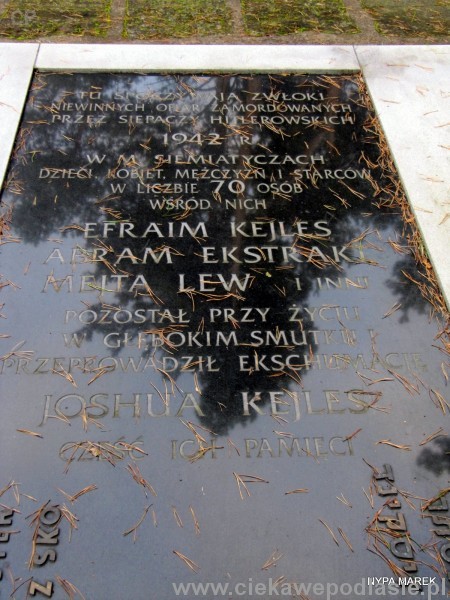Astoria
15 Oct 2013
Genealogy / THE MEANING AND RESEARCH OF MY POLISH LAST NAME, SURNAME? [4500]
Dubiel: first recorded in 1424, from Old Polish dubiel "fool; a kind of fish".
Sources:
a/ Kazimierz Rymut, "Nazwiska Polaków. Słownik historyczno - etymologiczny", Instytut Języka Polskiego PAN, Kraków 1999
b/ Kazimierz Rymut, 'Nazwiska Polaków. Słownik historyczno - etymologiczny, Wydawnictwo Naukowe DWN, Kraków 2001
c/ Zofia Kaleta, "Słownik etymologiczno-motywacyjny staropolskich nazw osobowych. Odmiejscowe nazwy osobowe", Instytut Języka Polskiego PAN, Kraków 1997
d/ Aleksandra Cieślikowa 'Słownik etymologiczno-motywacyjny staropolskich nazw osobowych. Odapelatywne nazwy osobowe', Wydawnictwo Naukowe DWN, PAN, Instytut Języka Polskiego, Kraków 2000
e/ Maria Malec 'Słownik etymologiczno-motywacyjny staropolskich nazw osobowych. Nazwy osobowe pochodzenia chrześcijańskiego', Polska Akademia Nauk, Instytut Języka Polskiego, Kraków 1995
f/ Zygmunt Klimek, 'Słownik etymologiczno-motywacyjny staropolskich nazw osobowych. Nazwy osobowe pochodzenia niemieckiego', Polska Akademia Nauk, Instytut Języka Polskiego, Kraków 1997
Dubiel: first recorded in 1424, from Old Polish dubiel "fool; a kind of fish".
Sources:
a/ Kazimierz Rymut, "Nazwiska Polaków. Słownik historyczno - etymologiczny", Instytut Języka Polskiego PAN, Kraków 1999
b/ Kazimierz Rymut, 'Nazwiska Polaków. Słownik historyczno - etymologiczny, Wydawnictwo Naukowe DWN, Kraków 2001
c/ Zofia Kaleta, "Słownik etymologiczno-motywacyjny staropolskich nazw osobowych. Odmiejscowe nazwy osobowe", Instytut Języka Polskiego PAN, Kraków 1997
d/ Aleksandra Cieślikowa 'Słownik etymologiczno-motywacyjny staropolskich nazw osobowych. Odapelatywne nazwy osobowe', Wydawnictwo Naukowe DWN, PAN, Instytut Języka Polskiego, Kraków 2000
e/ Maria Malec 'Słownik etymologiczno-motywacyjny staropolskich nazw osobowych. Nazwy osobowe pochodzenia chrześcijańskiego', Polska Akademia Nauk, Instytut Języka Polskiego, Kraków 1995
f/ Zygmunt Klimek, 'Słownik etymologiczno-motywacyjny staropolskich nazw osobowych. Nazwy osobowe pochodzenia niemieckiego', Polska Akademia Nauk, Instytut Języka Polskiego, Kraków 1997


